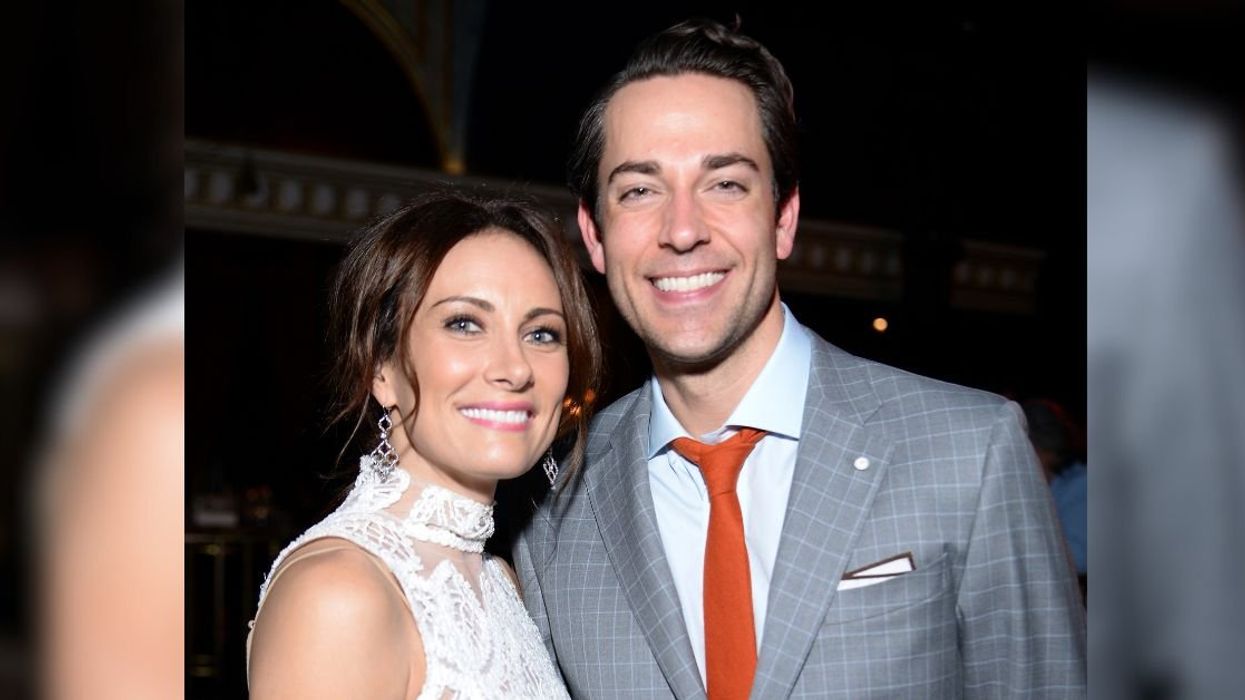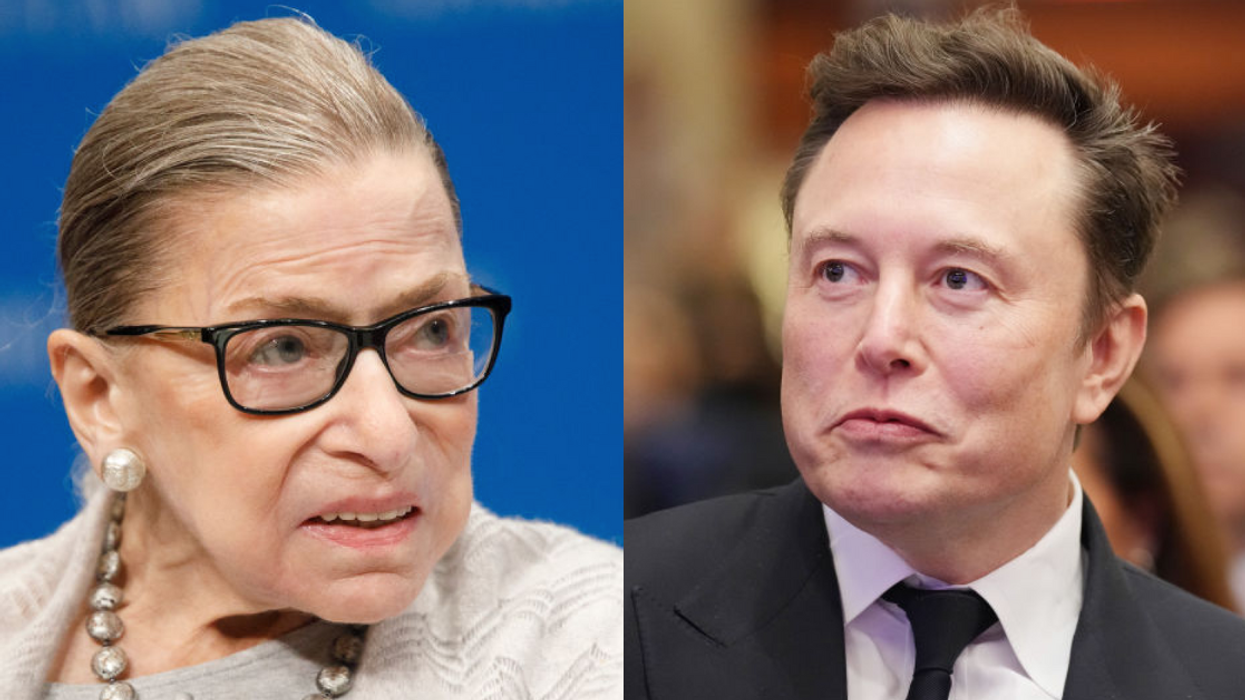*The following article contains discussion of suicide/self-harm.
Warriors, scientests, feared world leaders, and other historical figures have left their mark on the world.
Many of them are remembered for their achievements or how they had a hand in contributing to an institution or community's demise.
But little is known about their ailments or struggles.
Curious to hear the medical histories of some of the world's most notorious people, Redditor ApexBarber asked:
"What historical figures most certainly had undiagnosed mental illnesses?"
They may be known for their greatness but it's believed they've had some hurdles to overcome.
The English Scientist
"A scientist from the 1700s, Henry Cavendish, measured the density of the earth like a century before it was confirmed within like 2% accuracy using pendelums and telescopes in a shack in his backyard. discovered Argon gas before anyone knew what it was."
"absolutely on the Autism Spectrum."
"He took the same walk, same route, at the same time, every night. specifically adjusted his route to avoid people. He wore the same clothes every day, when they wore out, he would have his tailor make him an identical outfit. He ate the same meal, leg of mutton, every day. once, a housemaid startled him on the stairs of his house, so he had a separate staircase built in the back of the house so it would never happen again. A certified genius, but weirdly antisocial, he would sit around his peers looking off to the side and listening to their conversations indirectly. A peer of his who was also his biographer noted his antisocial behavior and described him in this quote -"He was not a Poet, a Priest, or a Prophet, but only a cold, clear, Intelligence, raying down pure white light, which brightened everything on which it fell, but warmed nothing"
"Edit: unsure if Autism is considered a mental illness, but this was just an interesting historical figure to me. Also side note: I'm not diagnosing him myself, there are specialists/doctors in the field who have said this. Nikola Tesla and Hugo Gernsback were also mentioned as on the spectrum."
– Cybox_Beatbox
The King Of Macedon
"By the end of his life, Alexander the Great was showing clear signs of PTSD. Of course, he also had suffered numerous physical injury as well, so mix in drinking tons of wine (and who knows what else) to act as painkiller and you can argue he was an alcoholic as well, exasperating the aforementioned PTSD."
– Toadman005
"Moses Of Her People"
"Harriet Tubman had narcolepsy due to her slave master throwing a lead weight at her forehead when she was a girl. She would fall asleep and random times and everyone would wait. Remarkable how she made it every time."
– O0O00O000O0000O
His Traits Were Symptoms
"I don't know if you'd count autism as a mental illness, but Nikola Tesla was definitely autistic to some degree."
"His general awkwardness, obsessive nature, and disassociation with people throughout his life was seen in the past as traits of a brilliant scientist, but certainly, when you think about symptoms and traits that people on the spectrum have, it all aligns with him."
– TildeGunderson
These historical figures were known to be born leaders, but when they were not in public, they may have struggled with despair.
Civil Rights Leader
"Martin Luther King. He attempted suicide twice and Coretta said he used to have mental breakdowns and binge on junk food and alcohol."
– Savitribaii
"Most Folks Are As Happy As They Make Up Their Minds To Be"
"It’s very likely that Abraham Lincoln had clinical depression."
– excessivegrease
"Even if you start out healthy, imagine that on your orders 20,000 to 25,000 people are killed in battle and you have to know that this is the right thing to do, and it has to be done over, and over, and over."
– FLEXXMAN33
The Term He Used For His Bouts Of Depression
"Churchill had his ‘Black Dog’."
– happierinverted
Literary Figures
"If I remember correctly it’s theorized that Virginia Woolf may have been bipolar, I could see it with Oscar Wilde too tbh. Their writing style just mimics the thought patterns too well."
"ETA: I’m not sure if they really count as historical figures. My include F. Scott Fitzgerald but maybe not. Possibly Hans Christian Andersen, he was a little eccentric. And idk if it counts but Nicola Tesla may have been in love with a pigeon towards the end."
– New-Grape5551
The Paranoid Author
"Hemingway was sane until no one believed him about the CIA following him. Everyone thought he was schizophrenic and he killed himself. Later the government admitted to following him."
– Jimi_The_Cynic
People shared their fascinating theories.
Origin Of An Ancient Practice
"Not a specific known figure but I’m pretty sure that the person who invented Feng Shui actually just had OCD but enough social influence to get everyone else to go along with it. Your furniture has to be arranged just right or something terrible will happen, somehow."
– SmartAlec105
The Thing About The Chinese Philosopher
"I actually heard something similar that Confucius had most likely some form of Asperger syndrome. Apparently he had some very specific ideas about how a person should enter the home of a different family, and had rituals that must be observed in his ideal society."
– YishuTheBoosted
While a person can declare that remarkable people have accomplished remarkable things, there is one notion many people can agree on–that "ordinary" people aren't the most impressionable people enough to leave a historical mark.
If you or someone you know is struggling, you can contact the National Suicide Prevention Lifeline at 1-800-273-TALK (8255).
To find help outside the United States, the International Association for Suicide Prevention has resources available at https://www.iasp.info/resources/Crisis_Centres/














 @NancyMace/X
@NancyMace/X
 @elviboreo/TikTok
@elviboreo/TikTok @elviboreo/TikTok
@elviboreo/TikTok @elviboreo/TikTok
@elviboreo/TikTok @elviboreo/TikTok
@elviboreo/TikTok @elviboreo/TikTok
@elviboreo/TikTok @elviboreo/TikTok
@elviboreo/TikTok @elviboreo/TikTok
@elviboreo/TikTok @ederbez/TikTok
@ederbez/TikTok @elviboreo/TikTok
@elviboreo/TikTok @ederbez/TikTok
@ederbez/TikTok @elviboreo/TikTok
@elviboreo/TikTok @elviboreo/TikTok
@elviboreo/TikTok @elviboreo/TikTok
@elviboreo/TikTok @elviboreo/TikTok
@elviboreo/TikTok
